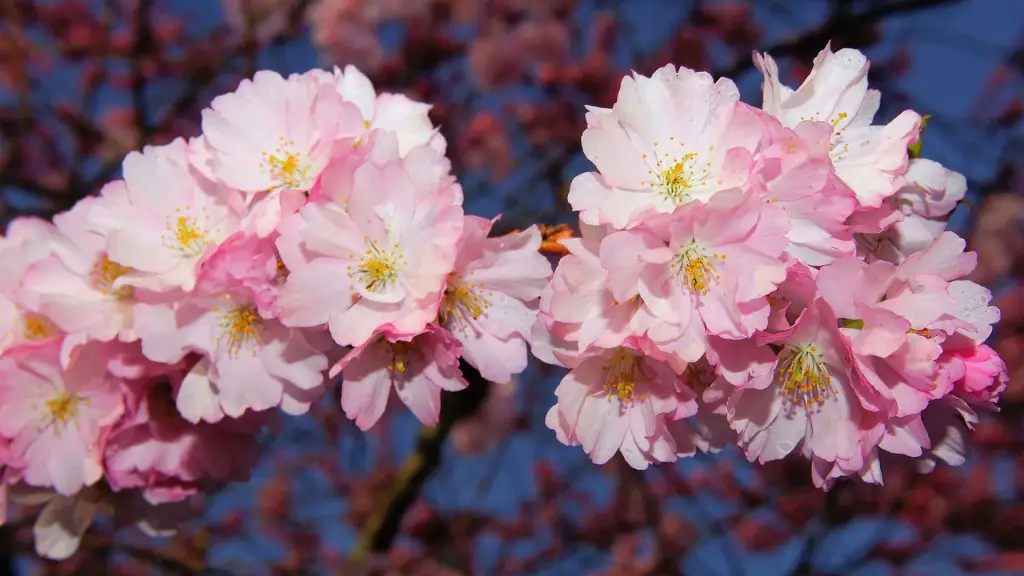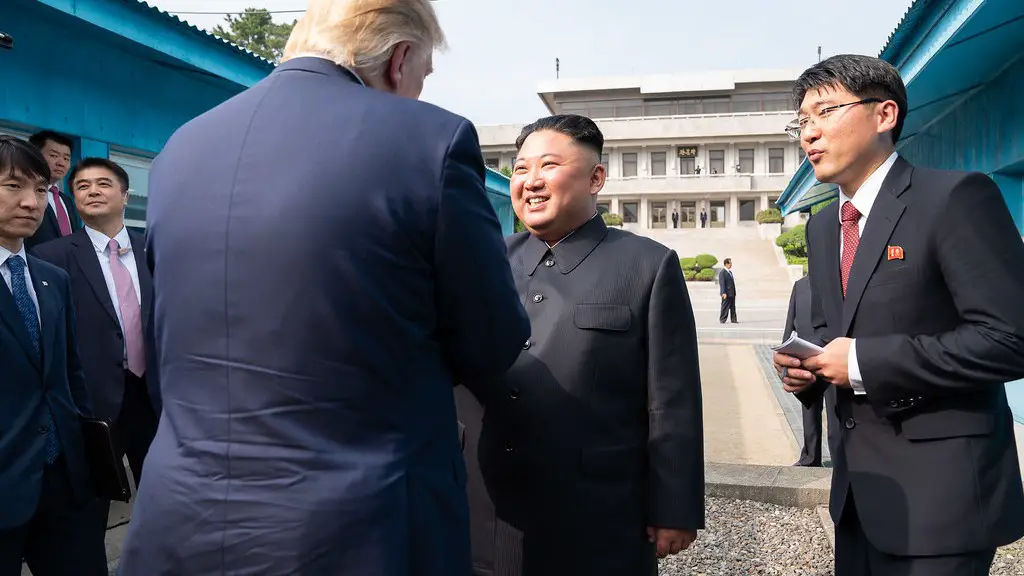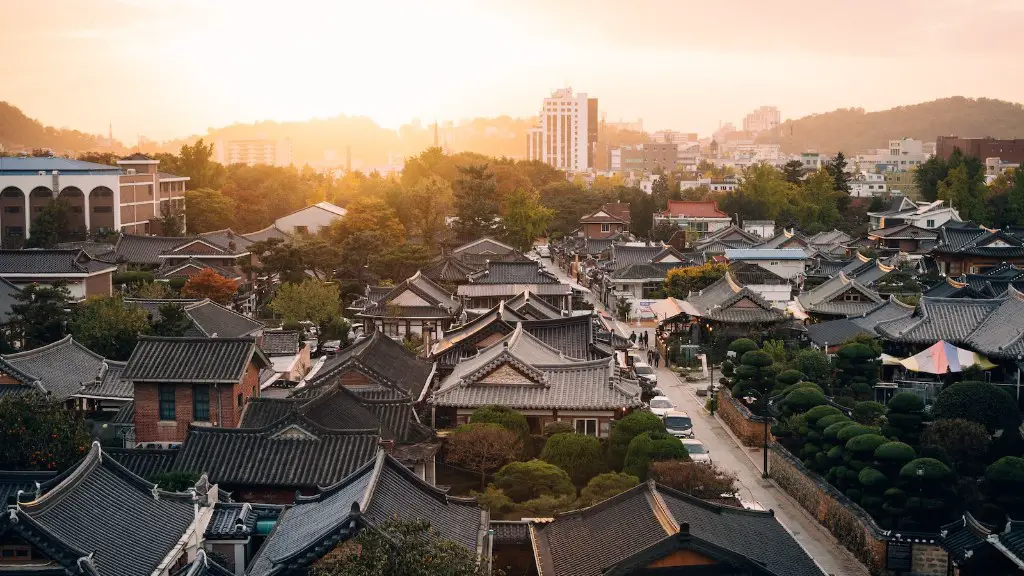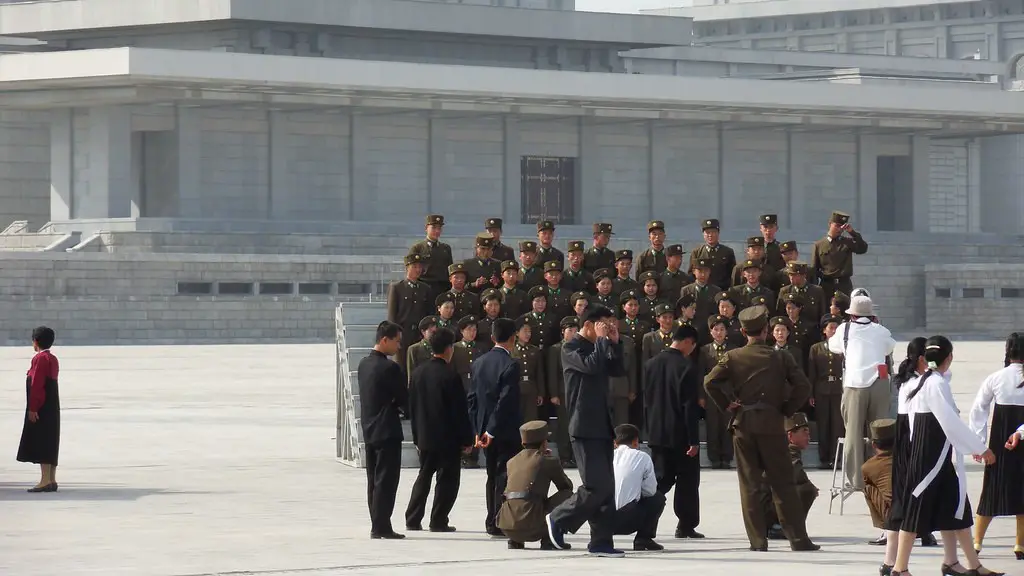Who are North Koreans? North Korea has one of the most mysterious, closed-off societies in the world. It is located in the heart of east Asia and wedged between South Korea, China, and Russia. North Korea has been isolated from the rest of the world since the Korean War. As a result, the world has known little about North Korea and its people.
This authoritarian state has no public representation. It has one of the most sophisticated censorship systems in the world, and its citizens have limited to no access to the internet. North Koreans were obligated to abide by the Korean Workers Party’s ideology, which is described as a “cult of personality”.
North Koreans are a homogeneous ethnic group. They are the descendants of the Tungusic and Mongoloid people from the Korean Peninsula. North Koreans are required to attend ideological classes from early childhood, which have direct political implications and are designed to ensure obedience to the state’s ideology. North Koreans have restricted access to information about the outside world.
At the same time, North Koreans have relatively high rates of literacy, with about 99% of adults being literate. North Koreans speak the Korean language, with some Chinese and Russian influence in the dialect. North Korean culture revolves around Confucian ideals with a mandatory emphasis on loyalty to the state and to the “supreme leader”. North Koreans observe numerous public holidays, often celebrating their government or military successes.
North Koreans are extremely militarized, with military obligations extending far past the typical conscription process. Every North Korean male must serve in the military for at least 10 years upon reaching adulthood, and females are encouraged to serve as well. North Koreans are expected to actively participate in the militarization process, including national defense, infrastructure development, etc. This militarized culture has been a key factor in North Korea’s isolation from the world.
North Koreans experience a great deal of hardship due to a combination of political repression, economic isolation, and sanctions. Over a quarter of North Koreans suffer from chronic malnutrition due to poverty and chronic under-nourishment. This is contrasted by North Korea’s expanding nuclear program, which has progressed despite global sanctions.
The nuclear program has caused a great deal of tension with the world’s most powerful countries, and the North Korean government has responded in an aggressive manner. North Korea is a highly secretive country and its government rarely engages in international diplomacy or negotiations, making their overall position in the international community highly uncertain.
North Korean Government
The North Korean government is an authoritarian dictatorship, led by a single party under the rule of the Supreme Leader. The head of the government is the President of the Supreme People’s Assembly, who is appointed by the Supreme Leader. The government is headed by the Cabinet, which is composed of several departments and state agencies. The government is highly centralized and closely monitored, with the goal of ensuring ideological consistency and loyalty.
The government keeps the people in a state of perpetual fear and uncertainty through a combination of propaganda and censorship. The North Korean government has a long history of human rights abuses, including targeting North Koreans who are critical of the government or express dissent. North Koreans are subjected to arbitrary arrest, torture, and execution.
International observers have routinely criticized the North Korean government for its lack of due process and its disregard for the rule of law. In addition, North Korea has come under fire for its numerous violations of international law, including its disregard for the rights of its citizens.
The North Korean government has made advances in the areas of diplomacy and international relations in recent years. In 2017, it reached an agreement with South Korea to reduce military tensions, and it has engaged in several diplomatic visits with other countries as part of an effort to address the issue of its nuclear program.
North Korean Economy
North Korea’s economy has suffered greatly due to its isolation from the rest of the world. It is a centrally planned economy, heavily reliant on foreign aid from China and other countries. In recent years, there has been a concerted effort by the government to expand its economic base through industrial development, energy production, and trade.
North Korea suffers from a shortage of basic goods and services, leading to a lack of purchasing power for North Korean citizens. North Korean citizens typically barter or use a “black market” to acquire basic goods and services. The current Financial sanctions imposed by the United Nations have further exacerbated North Korea’s economic woes.
In recent years, the government has made some progress in its efforts to develop a more self-sufficient economy by opening itself up to limited foreign investment and investment by foreign companies. There are a number of North Korean state-owned enterprises, which are heavily managed by the governing party. North Korea also participates in international trade, primarily in the areas of raw materials and textiles.
Despite some recent economic reforms, North Korea remains one of the poorest countries in the world. The United Nations estimates that more than 40% of North Koreans live in extreme poverty and struggle to access basic health care, food, and other basic necessities.
North Korean Relations
North Korea’s relations with other countries in the world have historically been strained, with some of its closest allies often falling out of favor. North Korea’s close ties to China, South Korea, and Japan have led to several diplomatic stand-offs in recent years.
In 2017, North Korea and South Korea reached a peace agreement, ending decades of hostility and easing tension on the Korean Peninsula. However, the agreement has been met with skepticism by some international observers due to North Korea’s ongoing nuclear weapons and missile program.
North Korea and the United States have recently been engaged in a series of negotiations aimed at resolving the current impasse over North Korea’s nuclear program. However, negotiations have been largely unsuccessful and have led to further distrust and tensions between the two countries.
In addition, North Korea has come under pressure from the United Nations for its repeated violations of international law, including its alleged involvement in cyber-attacks and its involvement in illicit activities such as money laundering.
North Korean Culture
North Korean culture is heavily influenced by the Korean Workers’ Party’s ideology and Korean traditions. North Koreans are generally expected to show loyalty and obedience to the government and its laws. Social life revolves around the family and the party, with strong emphasis placed on the importance of education.
North Korean culture is heavily influenced by the traditional Korean martial arts known as Taekwondo and Hapkido. North Koreans are also known for their appreciation of music, particularly classical and folk music. North Koreans are avid sports fans, and are known for their passion for soccer, weight-lifting, and gymnastics.
North Koreans have limited access to foreign culture, as the government heavily censors what is broadcasted in the state media. In recent years, there has been an expansion in the availability of foreign-made films, books, and music in North Korea, though only the approved titles are permitted.
North Korea is also well known for its unique cuisine, based heavily on grains and vegetables. North Koreans are especially fond of dishes such as kimchi, a fermented cabbage dish. North Koreans typically celebrate the same holidays as South Koreans, though the celebrations often reflect the country’s militaristic culture.
North Korean Education
North Korea’s education system is highly centralized and strictly regimented. North Koreans are educated in their local schools, then tested for their knowledge of the topics taught at their schools. Depending on their performance on these exams, North Koreans may be placed in specialized schools to further their studies.
Schools in North Korea focus largely on teaching the state ideology. Students are heavily indoctrinated in the principles of Communism and loyalty to the Party. In addition, North Korean schools focus heavily on the study of Science, Math, and the Korean language. Foreign languages are rarely taught, with the exception of Russian.
North Korea’s literacy rates are relatively high for a developing country, though the quality of education is often low due to a chronic lack of resources. North Korean universities are highly regulated and their curriculum is largely focused on the study of Korean language, Ideology of the party, and military studies.
In recent years, there has been an increasing focus on Science and Technology in North Korean schools. North Korea has also opened its universities to foreign students, with some universities offering degree programs in partnership with Chinese and other foreign Universities.





